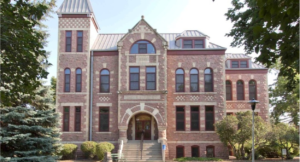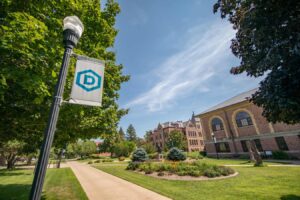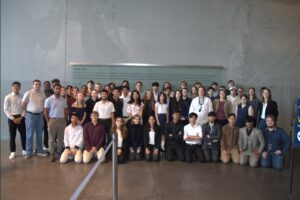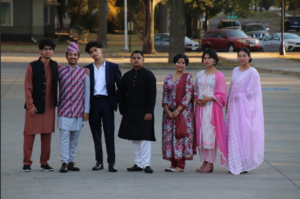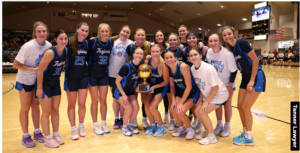Dr. Joseph Bottum’s Poetry Reading
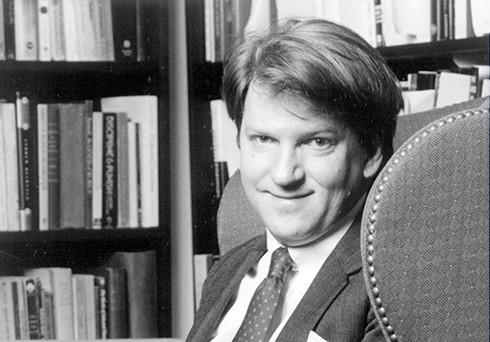
Dr. Joseph Bottum, DSU photo
Are you interested in reading or writing poetry? Do you want to expand your horizons and become familiar with poetry? DSU’s Director of the Classic Institute, Dr. Joseph Bottum, has agreed to spend Wednesday reading his works to students on campus in the Karl Mundt Library in room 201. Dr. Bottum is a well-known author from Vermillion, South Dakota. Last spring he was given the privilege of writing and reciting a poem for Princeton’s graduation. He will be reading poems from his newly published book “Spending the Winter,” along with poems from 3 other collections he has published. We were able to interview Dr. Bottum and get more information about this collection and why he decided to read at DSU.
1. Why did you choose to read “Spending the Winter” at the poetry reading, as opposed to your other works?
I’ll be reading at DSU from all three of my formal poetry books, as well as some verse from my Christopher Award-winning children’s book. But most of the reading will be from Spending the Winter, my new collection from St. Augustine’s Press that just appeared this month—just because, I suppose, it’s new. My other books are non-fiction: An Anxious Age, a study of American religious sociology; The Decline of the Novel, a literary study; The Christmas Plains, a memoir of growing up in South Dakota; etc. And the new poetry collection offers an opportunity to read from my poetic work.
This is the third book I’ve published since I came to DSU in 2018, and the acknowledgments in the book thank such DSU figures as Prof. Justin Blessinger, Dean David Kenley, and President José-Marie Griffiths, who have supported and encouraged my work. So it seemed only right to have DSU be one of the first places at which I would read from the book—a collection of mostly formal poems.
Some of them are older poems I hadn’t previously collected in books, including the popular light verse of “Reading by Osmosis.” The rest are new poems, together with translations of several poems in Portuguese and Latin, that I wrote this winter and spring.
2. We heard that you were honored with the task of writing and reading a poem for Princeton’s graduating class. How was that experience? What challenges did you have to overcome to write the poem?
I was commissioned to write the Phi Beta Kappa poem for Princeton University this spring. I delivered it at the graduation ceremonies in May and felt that the reading was well received—particularly since the poem was long for the occasion, walking through all four seasons of the year and tying them to the students’ futures. The final section, “Autumn,” was published later that month in the Free Beacon, with the lines: “This is your Morning Star—that you must die. / This is your Evening Star—that you are free.” I’m including the poem among those I read at DSU on October 19.
3. What advice can you give aspiring poets and authors?
Read. Then read so more. Then read some more again. If you don’t like reading poetry, you have little chance of becoming a poet. If you don’t like reading good prose, you have little chance of becoming a fiction-writer.
Here are a couple of samples of Dr. Bottum’s works:
Bliss and Blunder
Worthless things and things of wonder
Are fish in a single lake—
For much of bliss is caught by blunder,
And joy by some mistake.
And here’s a longer, weightier passage from “Easter Morning”:
My daughter runs by the brief flowers:
Touch-me-nots among the stones,
Bluebells and sorrels, Solomon’s seal.
Every spring pretends a pity
For all the pretty, short-lived things.
Last night I watched the fire zones,
The bombers’ plumes and tracer rounds,
Blooms of war on the TV news.
And now in these green trees I see
The graves of gods and a grove of bones.
Come and listen to Dr. Bottum’s reading if you are free at 3 pm this Wednesday, October 19th. In the words of the great Shakespeare, “We know what we are, but know not what we may be.” You may learn something new about yourself and discover a newfound love for poetry.
